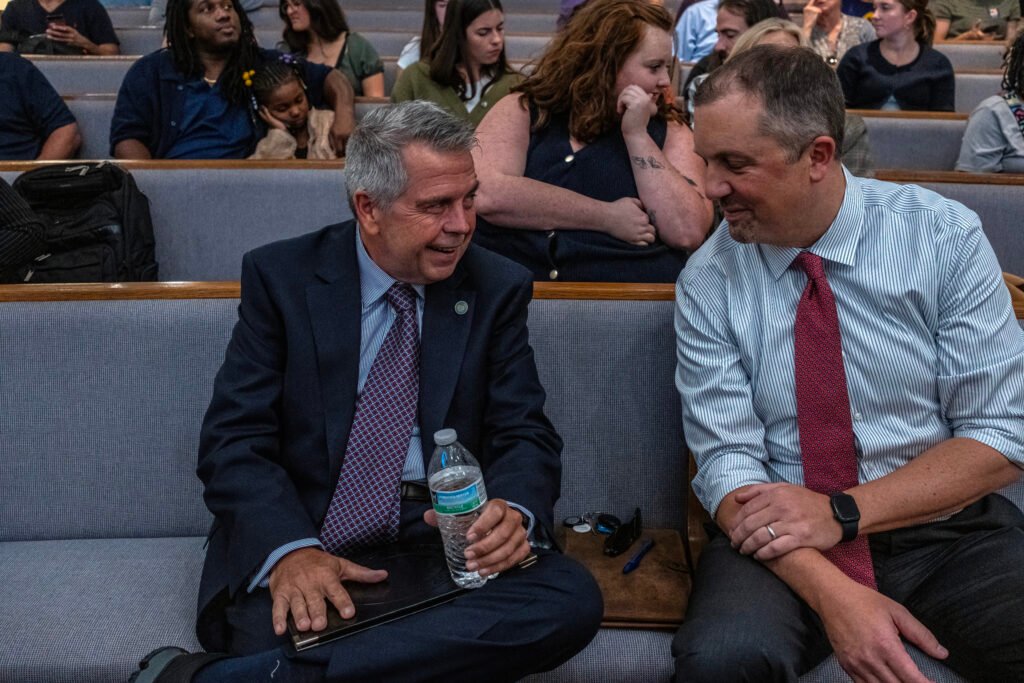Kilmer Abrego Garcia was released from Putnam County Jail on August 22, 2025.
NASHVILLE – A federal judge in Nashville has indicated there’s a “real possibility” that significant governmental overreach occurred in the human smuggling charges against Kilmer Abrego Garcia.
This 16-page decision from US District Judge Waverly Crenshaw allows Abrego’s legal team to pursue documents and testimonies from officials in the Trump administration, based on their public comments and the rationale behind bringing criminal charges.
Crenshaw pointed out that the government has faced repeated hurdles in its attempts to deport Abrego, part of a significant early test of the Trump administration’s deportation strategies.
He noted, “This has created a serious burden and embarrassment for the agencies involved, requiring extra time, resources, and international goodwill for removing Abrego either to El Salvador or another country.”
Prosecutor: No “malicious” intent in the Tennessee prosecution of Kilmer Abrego Garcia.
Abrego entered the U.S. illegally as a teenager and worked as a sheet metal apprentice in Maryland, as referenced in the Tennessee case. The 31-year-old, who is a married father, was deported in March despite a hold issued by an immigration judge in 2019. Federal prosecutors acknowledged that Abrego’s deportation followed his statements that led to a retaliation request.
Currently, Abrego faces potential deportation to Eswatini, according to officials. He is set to appear in Maryland Court on Friday for that matter.
Crenshaw approved Abrego’s request to pursue claims about possible government misconduct and pointed to the timeline surrounding the criminal charges in Tennessee as an indicator of “potential irrationality of the prosecutors.”
Abrego was deported on March 15 following a routine traffic stop in Maryland. Just nine days later, his lawyers filed a lawsuit in federal court challenging the legality of that deportation decision. The Supreme Court saw the case.
In a matter of days after the Supreme Court’s ruling, Crenshaw noted that the U.S. Department of Homeland Security reinitiated its investigation into the 2022 traffic stops in Tennessee, which resulted in no tickets or arrests at the time.
The government moved quickly to charge Abrego, with the investigation concluding in less than a month. The judge issued two counts against him, and he returned to Nashville to address these charges. He has since been released while awaiting trial, remaining under the oversight of immigration and customs enforcement. Abrego has pleaded not guilty.
Kilmer Abrego Garcia’s attorneys are seeking to dismiss the Tennessee case, labeling prosecutors as “hostile.”
On the day he was indicted, Homeland Security Secretary Pam Bondi and others expressed satisfaction over the criminal charges brought against him, leading to deportation back to El Salvador, as noted by Crenshaw.
Additionally, the judge mentioned that Deputy Homeland Security Attorney General Todd Blanche revealed after a Maryland judge questioned the government’s actions that there was no justification for expelling Abrego, and he criticized the government for fraud.
Crenshaw remarked, “The significant comment from Deputy Attorney General Blanche could directly illuminate the motives behind Abrego’s criminal charges, suggesting they stemmed from his exercising constitutional rights rather than any intent to prosecute him for genuine legal misconduct.”
Prosecutors have denied that there was any “malicious” behavior in the case.
Crenshaw’s ruling does not reach a final decision on whether the charges against Abrego should be dismissed due to alleged vindictive prosecution. Instead, it permits Abrego’s attorneys to gather more evidence to present at an upcoming hearing, though no date has been set for that.







